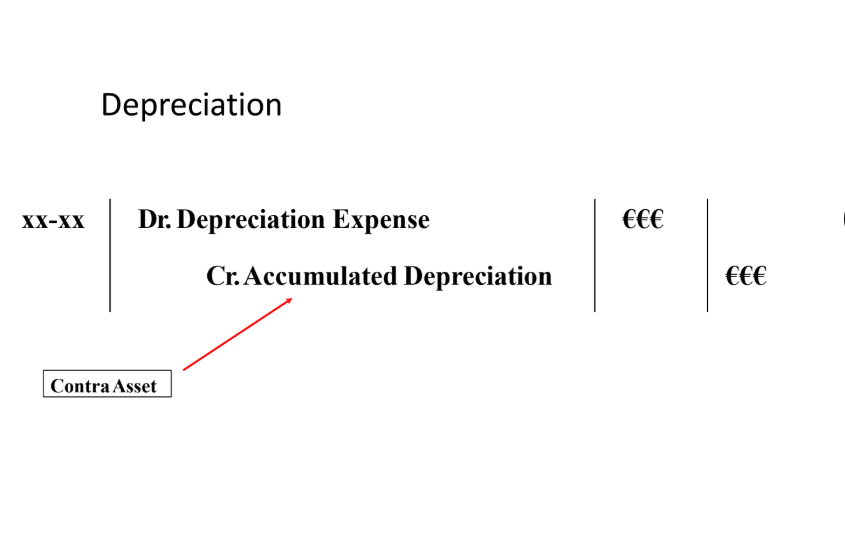Financial Accounting
1/26
There's no tags or description
Looks like no tags are added yet.
Name | Mastery | Learn | Test | Matching | Spaced |
|---|
No study sessions yet.
27 Terms
Assets
What the organization owns
Liabilities
What the organization owes
Equity
(Owners'/ Shareholders') Equity is the term that is used to describe the value of the corporation to its owners. Equity is the difference between what the corporation owns and what the corporation owes.
What is the basic accounting equation?
Assets - Liabilities = Equity
Assets = Liabilities + Equity
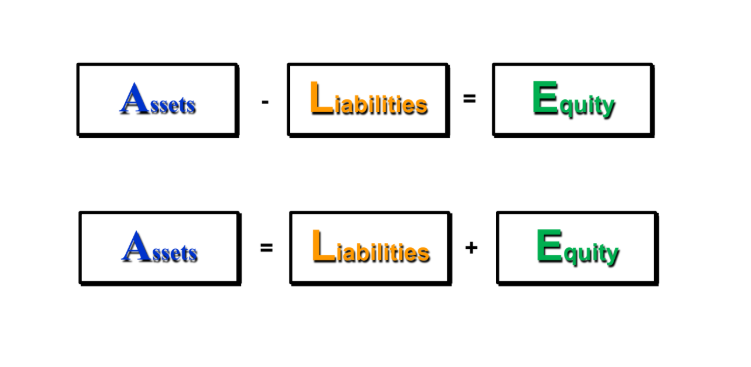
What is the expanded accounting equation
A = L + E
A = L + SC + REV - EXP - DIV
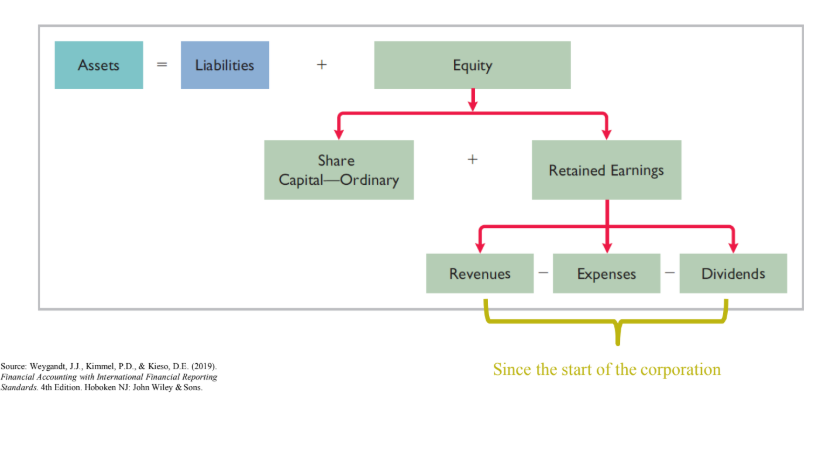
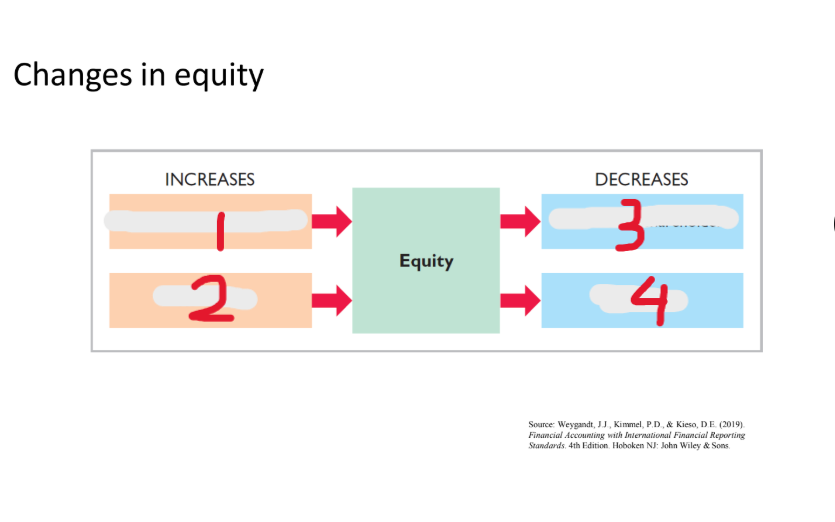
Changes in equity (What is 1?)
Investments by shareholders
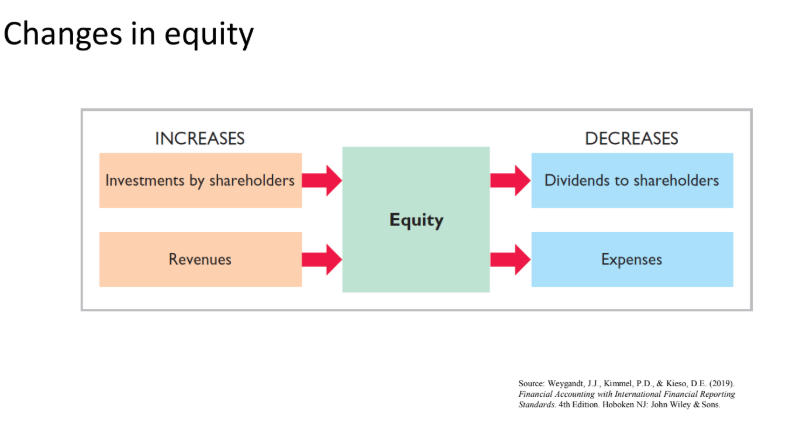
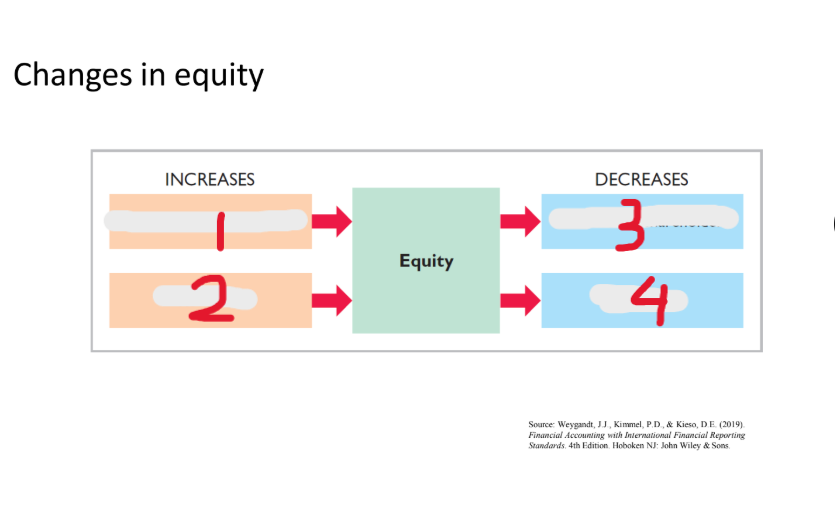
Changes in equity (What is 2?)
Revenues
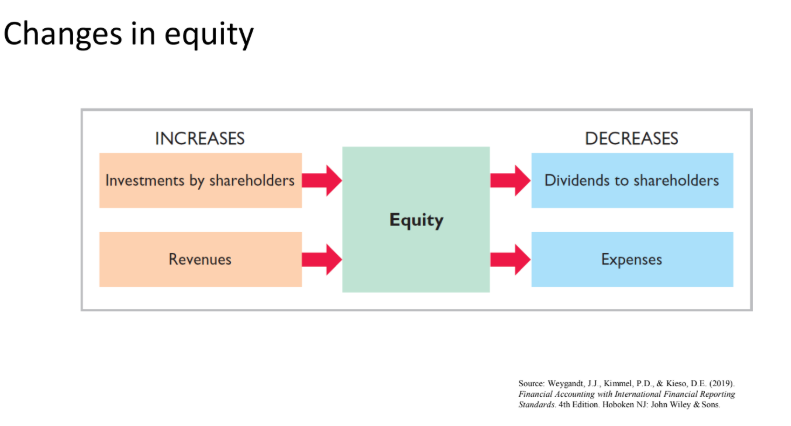
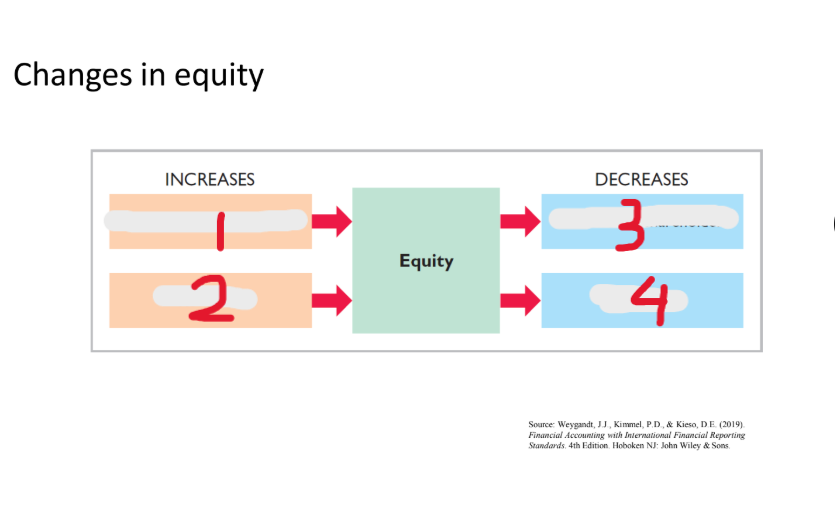
Changes in equity (What is 3?)
Dividends to shareholders
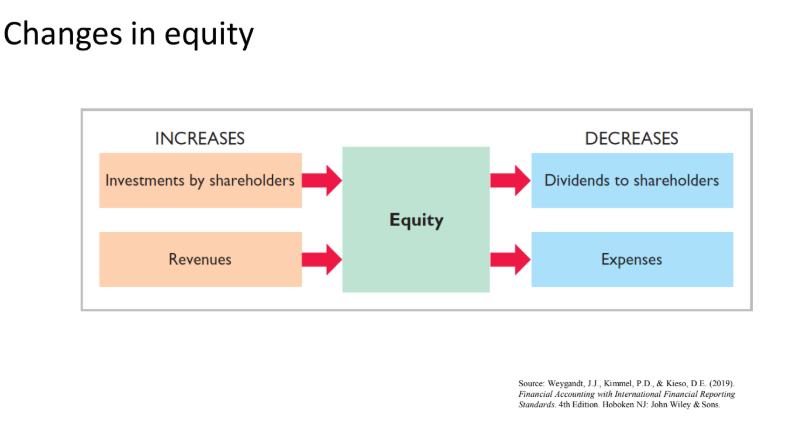
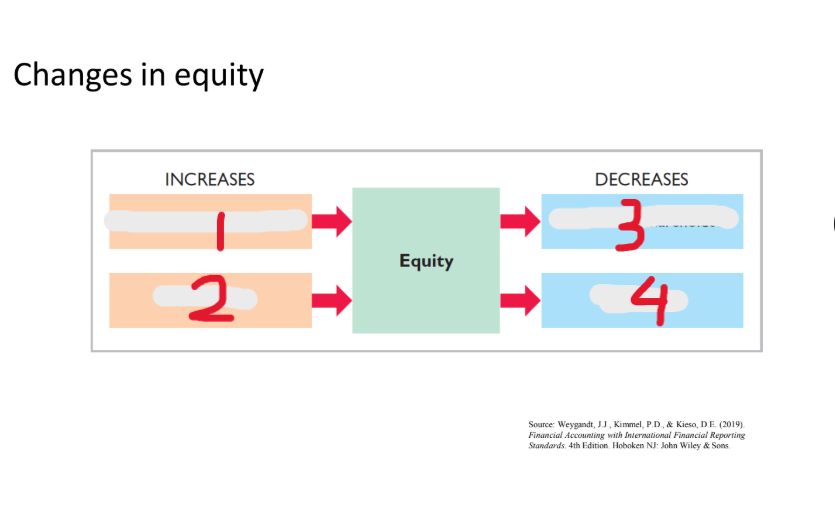
Changes in equity (What is 4?)
Expenses
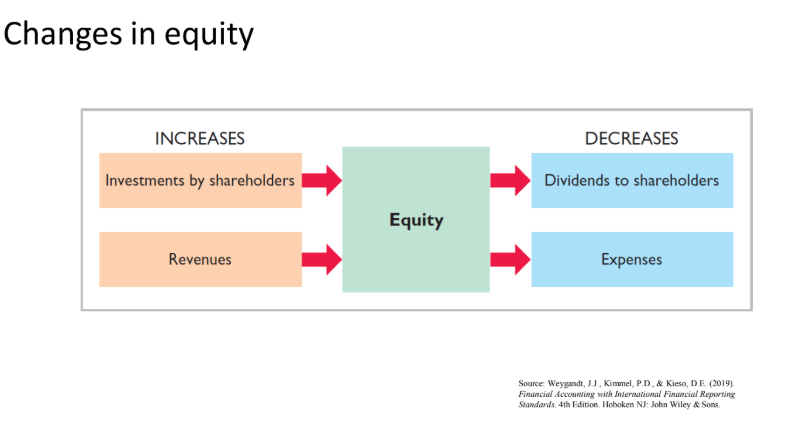
Define bookkeeping
The process of registering transactions is called bookkeeping. Each transaction has a dual effect on the accounting equation.
• Remember: the accounting equation always holds.
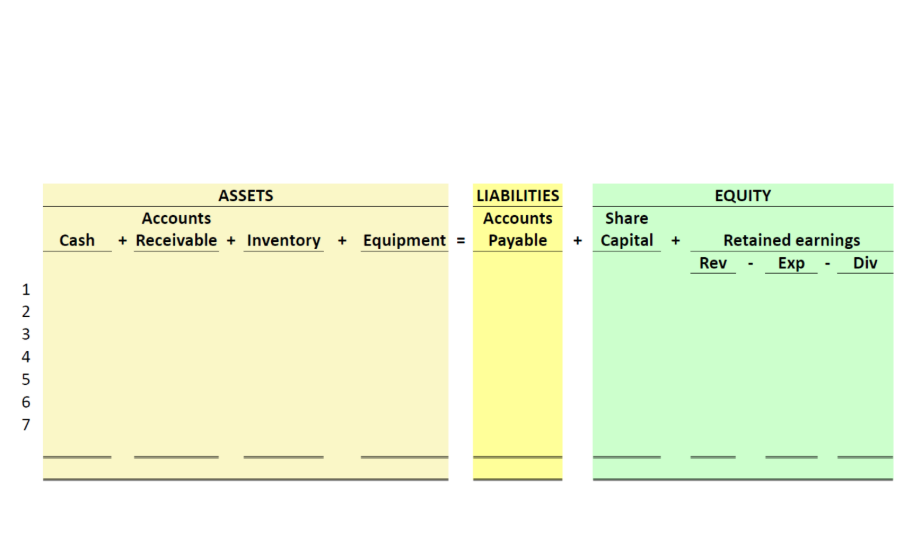
How would you solve this?
Example: Spicemeup.nl BV
The transactions related to the first month of operations of Spicemeup.nl BV were asfollows:
1. The initial shareholders invested cash (€100,000) in return for ordinary shares in the company.
2. Purchased office equipment for €15,000 cash.
3. Purchased 800 bottles of hot sauce for €6,000.The supplier (Iguana S.A.) sent an invoice that needs to be paid within 30 days.
4. Paid Tom his monthly salary of €3,000.
5. Received a bill for €500 from Twitter for advertisements placed. The bill needs to be paid withintwo weeks.
6. Paid the bill of Iguana S.A. (€6,000).
7. Paid a cash dividend of €5 per share.
answer in image
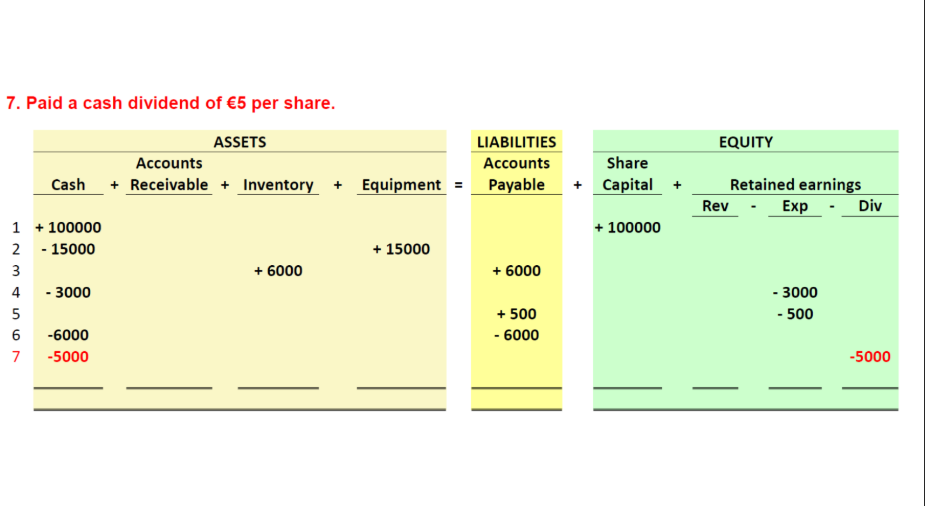
Assets have “__”
Assets have “debit accounts”
• An increase requires a debit entry
• A decrease requires a credit entry
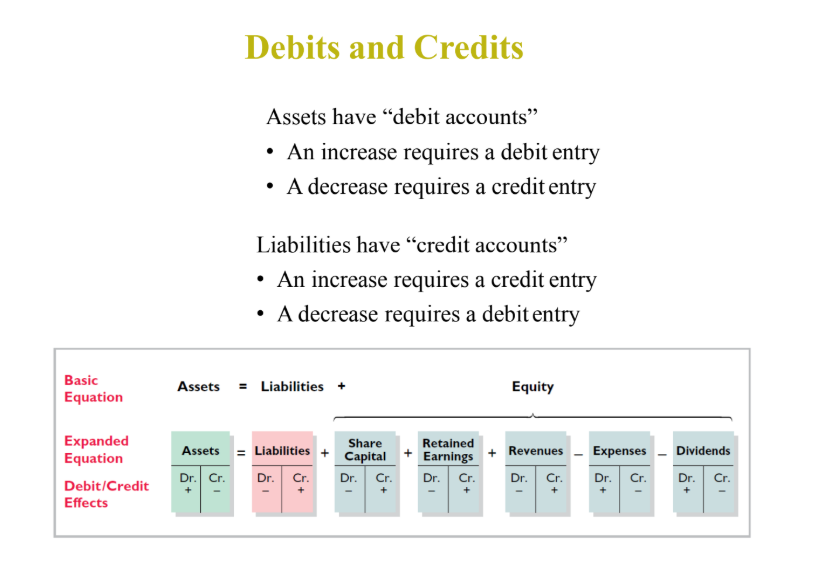
Liabilities have “__”
Liabilities have “credit accounts”
• An increase requires a credit entry
• A decrease requires a debit entry
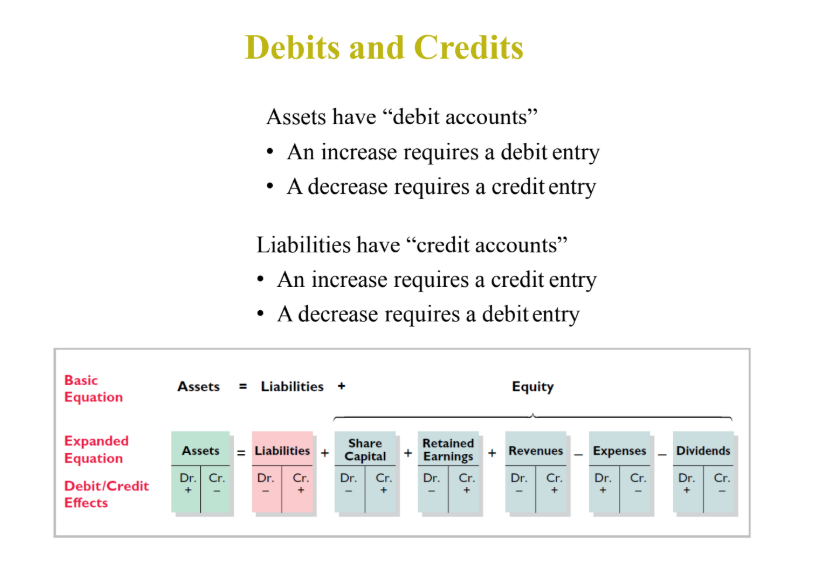
What is Journalizing?
Entering transaction data in the journal.
Illustration: On September 1, Bark Dog Grooming shop’s initial shareholders invested €15,000 cash in the corporation in exchange for ordinary shares. On the same day, the company used €7,000 cash to purchase computer and dog grooming equipment.
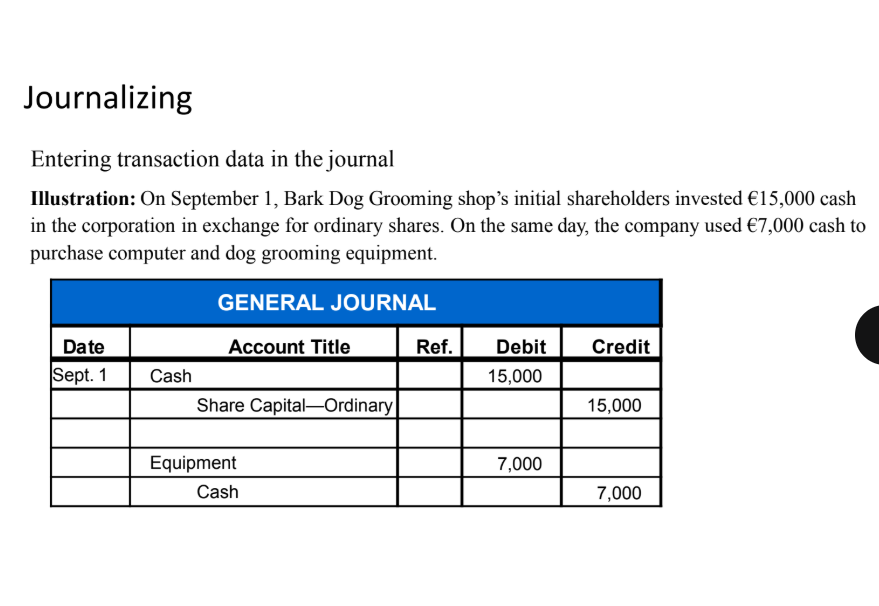
solve:
Applying the Accounting Equation: Journal Entries
● Tom inc. repays accounts payable worth $300 using cash.
● Tom inc. purchases equipment worth $1000 on account.
SOLUTIONS:
1. Dr. Accounts Payable 300
Cr. Cash 300
2. Dr. Equipment 1000
Cr. Accounts Payable 1000
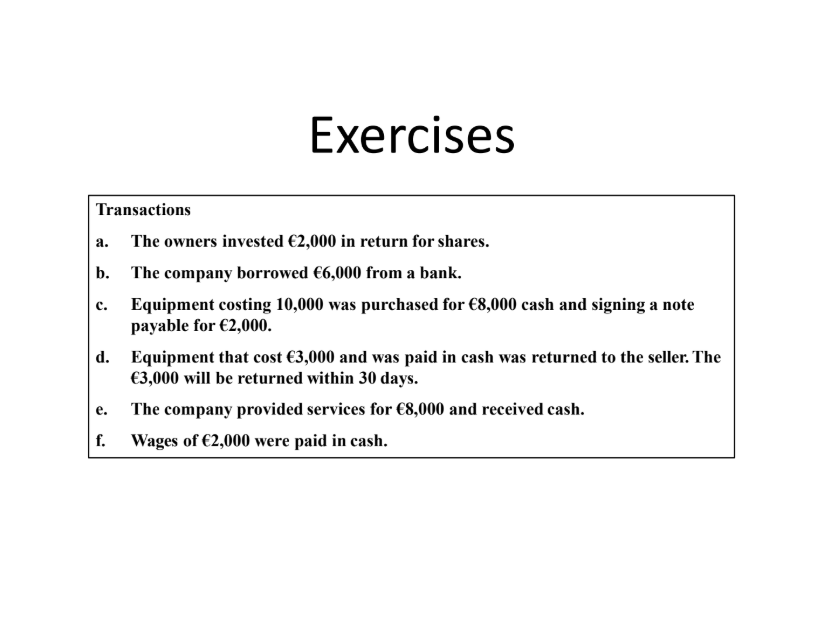
Exercise:
in image
solution:
in image
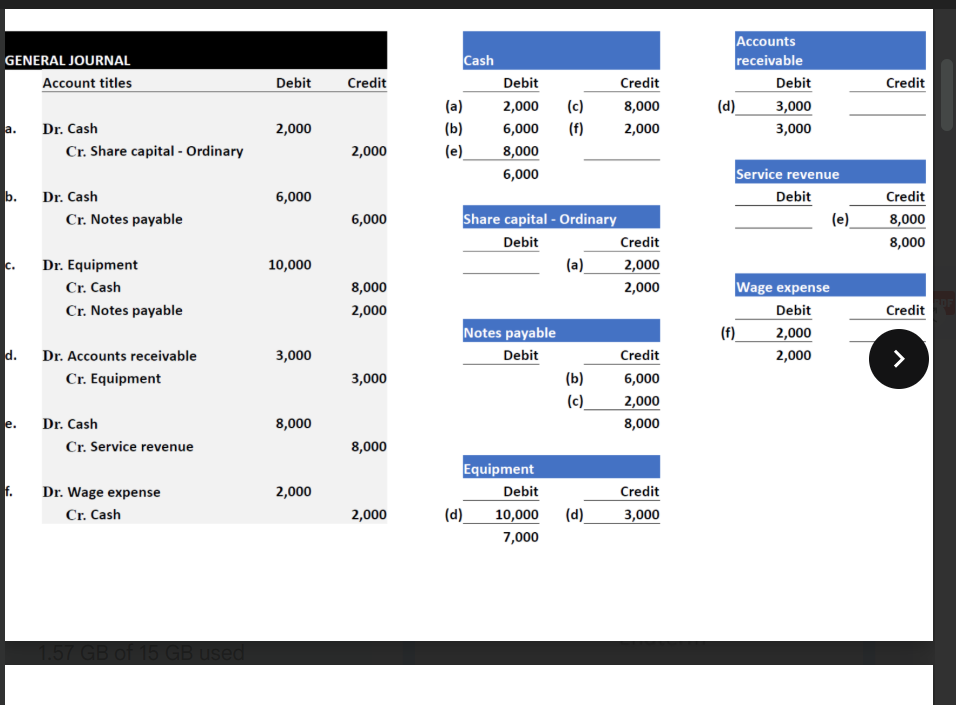
Define The general ledger
The collection of accounts.
Accounts are typically in three-column format
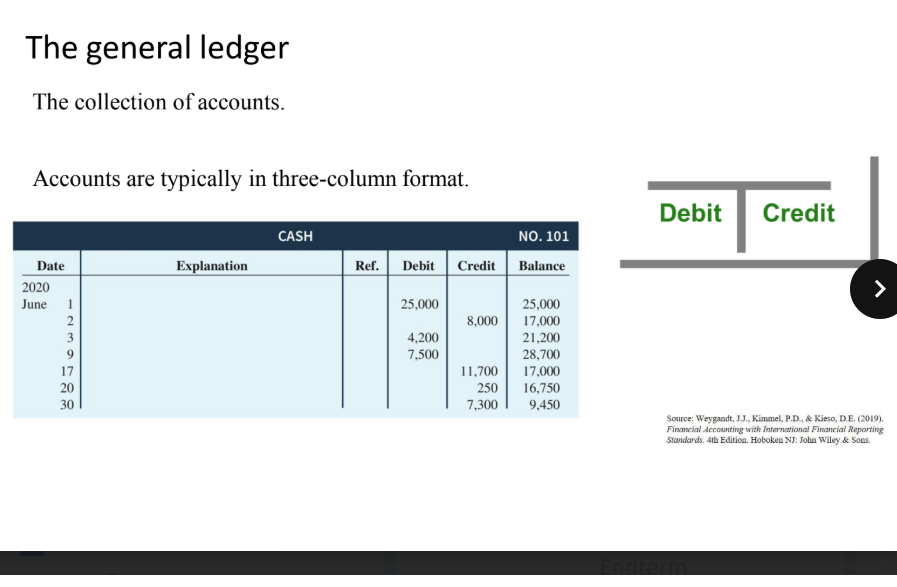
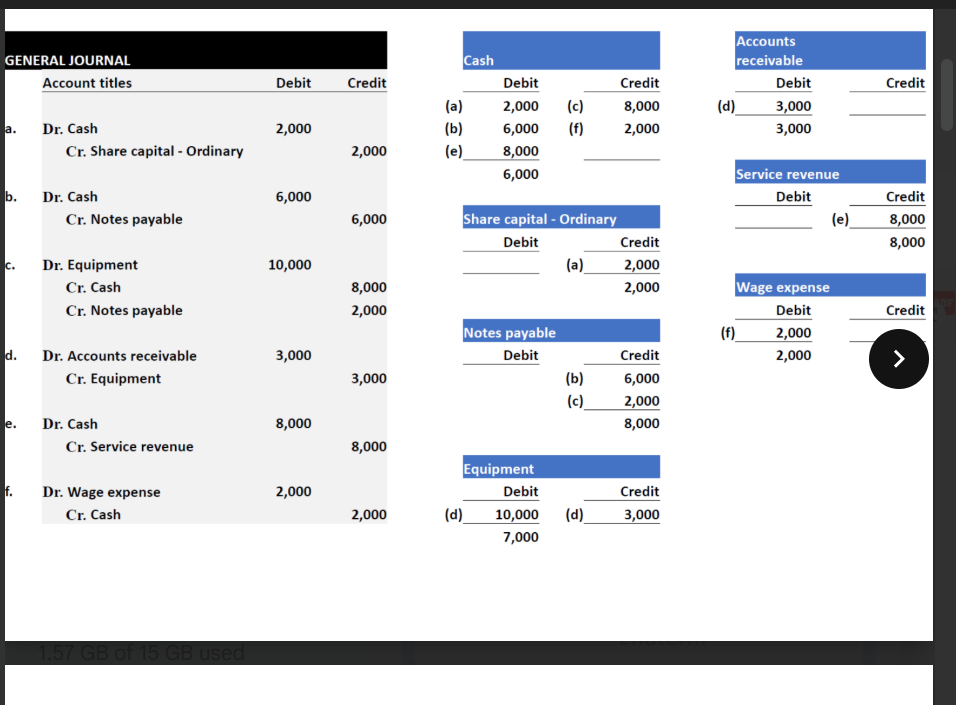
What is The Trial Balance
A list of accounts and their balances at a given point in time
• Check the mathematical equality of debits and credits after posting. The steps for preparing a trial balance are:
1. List the account titles and their balances.
2. Total the debit and credit columns.
3. Prove the equality of the two columns.
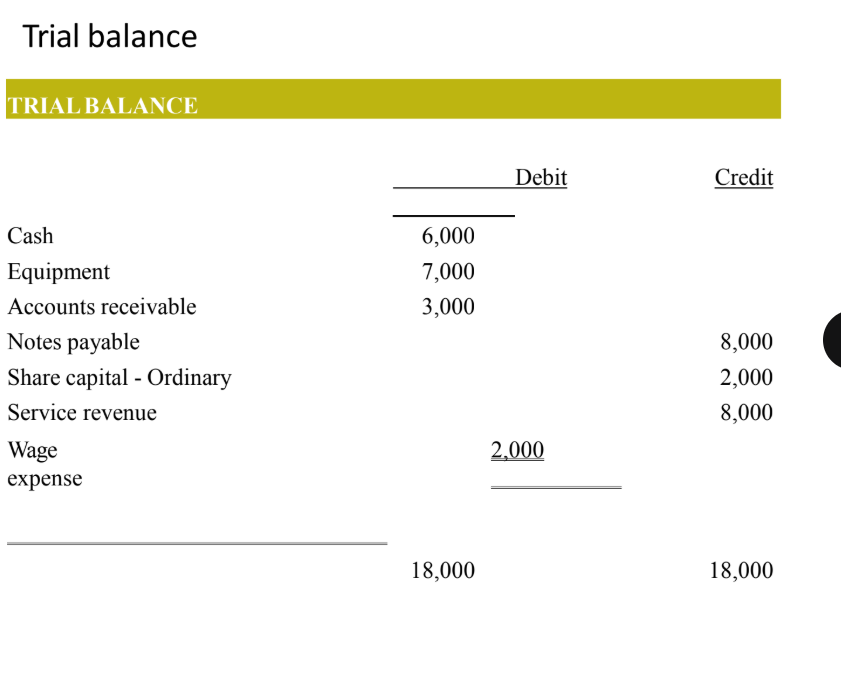
Define Accrual accounting
the term that we use for registering changes in value of equity (Revenues and Expenses) in addition to, and separately from, cash flows.
Nearly all accounting is accrual accounting
To which period do revenues and expenses belong?
Revenue recognition principle
Expense recognition principle
• The Matching principle
What is Revenue recognition principle?
Revenue is recognized in the accounting period in which the performance obligation is satisfied.
What is Expense recognition principle?
Expenses are recognized in the accounting period in which the company generates revenues because of these expenses.
What are the 4 possible complications?
Revenues should be recognized before cash is received.
• Accrued revenues
Cash is received before revenues should be recognized.
• Deferred (“unearned”) revenues
Expenses should be recognized before cash is paid.
• Accrued expenses
Cash is paid before expenses should be recognized.
• Deferred (“prepaid”) expenses
How to deal with these complications?
at the moment of the first transaction:
• create an asset or liability
at the end of the period:
• make an adjustment entry
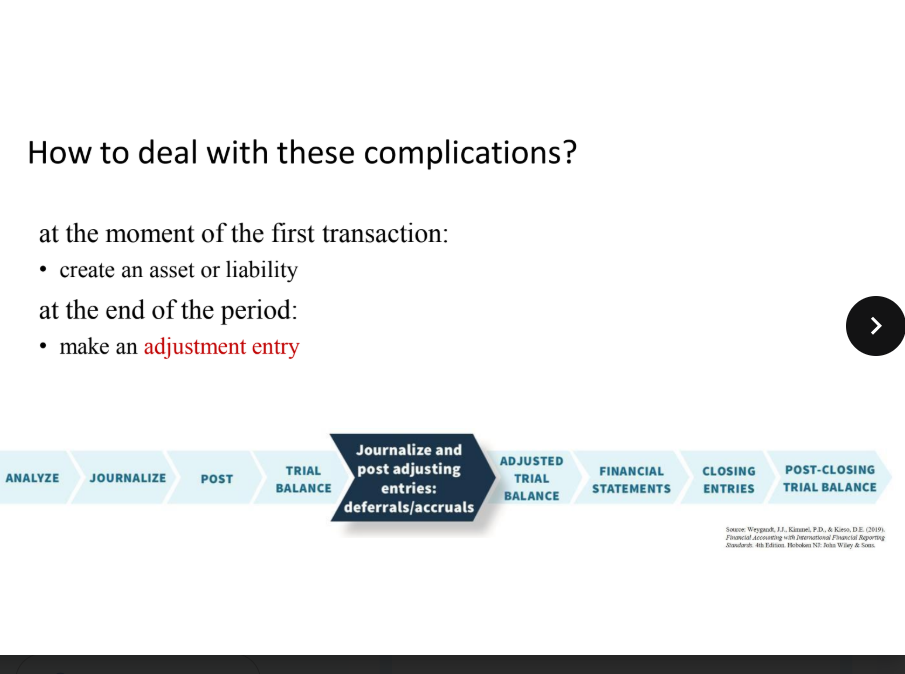
What are some examples to to deal with the complications?
Deferred (“prepaid”) expenses
Deferred (“unearned”) revenues
Accrued expenses
Accrued revenues
What are Prepaid expenses?
• Payment in advance of “use”.
• When payment is made, an asset is created.
• At the end of a period in which the expense has been used to generate revenues, (part of) the asset is reclassified as an expense.
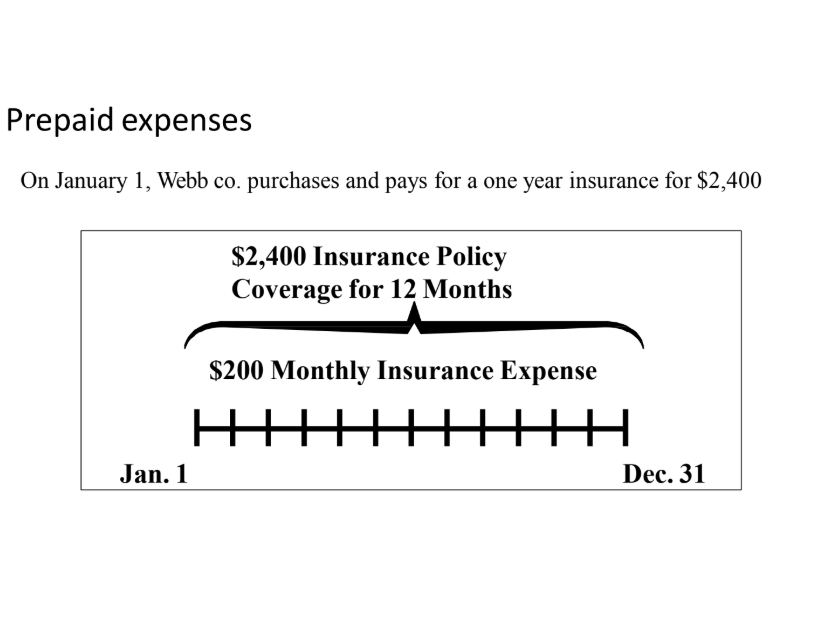
Prepaid expenses example:
On January 1, a transportation company buys a van for €30,000. It will use the van for six years, after which it has no resale value. What is the expense for the van in the year in which it is bought?
What is the expense for the van in the year in which it is bought?
Company uses van in six subsequent years
Original cost of €30,000 is spread equally over these six years.
• €5,000 per year
Depreciation!
